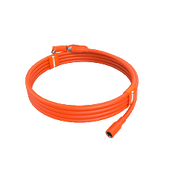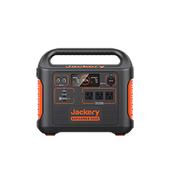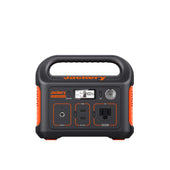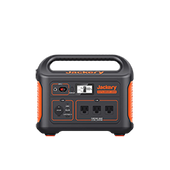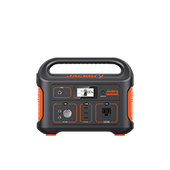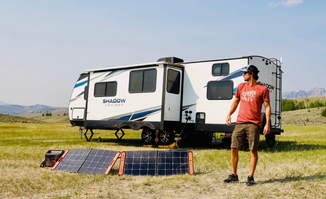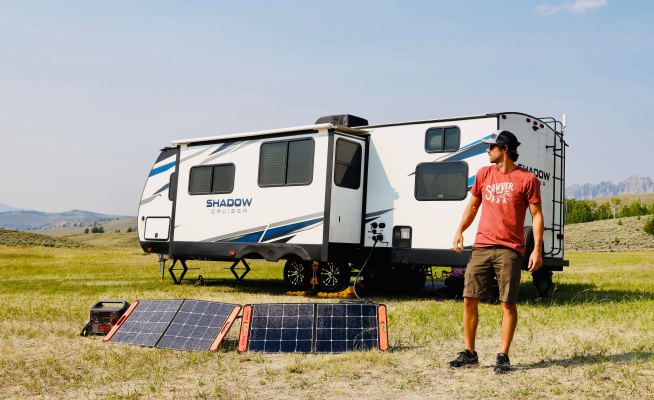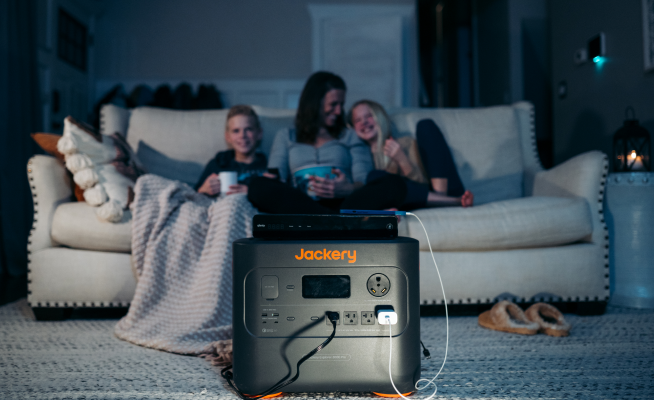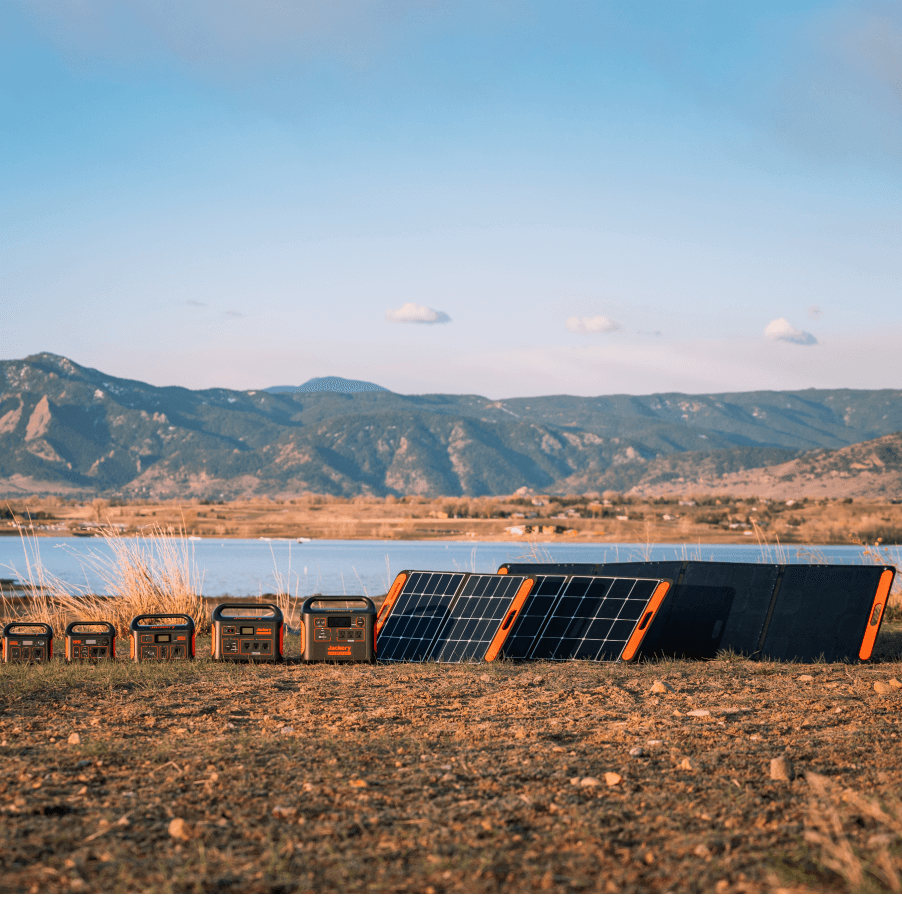In recent years, a palpable shift towards sustainable living has ignited a growing interest in harnessing renewable energy. Amidst this eco-conscious movement, solar power stands out as a beacon of hope. It offers homeowners a chance not only to reduce their carbon footprint but also to make a tangible impact on the environment.
Two prominent contenders in the realm of residential solar solutions are solar shingles and solar panels. Both offer unique advantages, catering to different preferences and architectural considerations.
Let's explore the key differences between these options, exploring the distinct features that make each technology noteworthy. Beyond the traditional rooftop installations, we will also explore portable solar power, enabling homeowners to embrace sustainable practices both within the confines of their homes and on the go.
Weighing the Costs: Solar Panel Cost Considerations
Investigating the financial aspects of solar panel installation in Canada is crucial for making a cost-effective choice, providing a comprehensive perspective on the economic feasibility of transitioning to solar energy.
Factors Affecting Solar Panel Costs
Several factors contribute to the cost of solar panels in Canada. The primary considerations include the cost per watt installed and the size of the solar panel system required for a property. The average cost of installing a solar energy system across all provinces and territories in Canada hovers just above $3 per watt, with regional variations. Ontario emerges as the province with the lowest installation cost, ranging from $2.34 to $2.59 per watt. Meanwhile, Nunavut presents the highest average cost, exceeding $4 per watt.
Determining System Size for Optimal Coverage
Calculating the appropriate size of a solar panel system involves assessing the annual energy consumption of a home. By examining utility bills and considering factors such as heating source (gas or electric), homeowners can estimate their energy needs. System size is critical to ensure sufficient coverage of electricity bills.
Total Solar Panels Cost Calculation
The total cost of installing a solar energy system depends on the calculated system size and the cost per watt installed. Using the equation:
Yearly energy use (in kWh) / annual average of full sunlight hours (in hours) = Size of system needed (in kW)
Homeowners can estimate the upfront cost, considering the regional cost per watt.
Financial Benefits and ROI
The financial benefits of solar panels extend beyond mere energy savings. Two primary avenues for financial gain are offsetting energy consumption and earning feed-in tariffs for excess energy. By achieving energy independence, homeowners can eliminate or significantly reduce monthly electricity expenses, potentially saving hundreds or thousands annually. Additionally, governments may offer feed-in tariffs as incentives for contributing excess energy to the grid.
Average Payback Period for Solar Panels in Canada
Understanding the average payback period is essential for evaluating the ROI of solar panels. With most systems having a lifespan of at least 30 years, a payback period ranging from 8 to 16 years is considered reasonable. Calculating the payback period is specific to each home's energy usage, location, available incentives, and the cost of energy distribution.
Government Incentives and Tax Credits
Government incentives and tax credits play a pivotal role in offsetting solar panel expenses in Canada. The Canada Greener Homes Grant, for instance, offers a grant of $1.00 per watt for the purchase of a solar voltaic system, up to a total of $5,000. This initiative encourages homeowners to embrace renewable energy solutions and makes solar panels more financially accessible.
Net Metering
Net metering provides an additional avenue for cost savings, allowing homeowners to sell excess electricity back to the grid. Unlike feed-in tariffing, net metering does not require an additional meter and calculates savings based on the current kWh rate of the utility grid.
Solar Shingles vs. Traditional Solar Panels: Making the Right Choice
When it comes to harnessing solar energy for residential and commercial spaces, the choice between solar shingles and traditional solar panels becomes a pivotal decision. Understanding the nuances of each option is crucial for homeowners contemplating a shift toward renewable energy.
1. Solar Shingles: Aesthetic Appeal and Integration
Solar shingles, also known as solar roof tiles, represent a harmonious blend of functionality and aesthetics. Unlike traditional solar panels, they seamlessly integrate into the roof's structure, resembling traditional roofing materials or asphalt tiles. The slim design and tailored fit provide an attractive look, enhancing the overall curb appeal of homes or commercial buildings. This aesthetic appeal positions solar shingles as a favourable choice for those paying a premium for solar technology's visual integration.
Despite utilizing the same photovoltaic effect as traditional solar panels, solar shingles are generally less efficient due to the lack of airflow underneath them, resulting in more heat dissipation and reduced efficiency. Also, solar roof shingles are integrated as part of the roof, fixing their location, which may impact their ability to capture maximum sunlight based on climate or home design. While similar in weight to traditional roofing materials, solar shingles essentially become the roof, adding weight beyond the roof's structure.
2. Traditional Solar Panels for Home: Efficiency and Cost-Effectiveness
Traditional solar panels, comprising photovoltaic cells arranged on rectangular plates, remain a popular and reliable choice for solar energy generation. Their installation involves mounting multiple panels on top of roofs using fitted brackets. Key considerations when evaluating traditional solar panels include:
- Cost Advantage: Traditional solar panels are generally less expensive than solar shingles. The well-established technology and installation process contribute to cost advantages, especially for those with existing well-functioning roofs.
- Higher Efficiency:Unlike solar shingles, traditional solar panels benefit from airflow underneath, promoting better heat dissipation and higher efficiency. They can also be removed and repositioned for optimal sunlight exposure.
- Flexibility in Mounting: Solar panels offer greater flexibility in mounting and repositioning. They can be installed on various roof types, including flat roofs, providing adaptability to diverse architectural configurations.
Traditional solar panels are bulkier and may not blend seamlessly with the existing roofing material, impacting the visual appeal of the property. The choice between solar shingles and traditional solar panels depends on a homeowner's priorities, preferences, and practical considerations. While solar shingles offer a visually appealing integration with the roof, traditional solar panels provide proven efficiency and cost-effectiveness. By weighing the advantages and disadvantages of each option, homeowners can make an informed decision that aligns with their aesthetic goals and energy needs.
Harnessing Solar Power on the Go: Portable Solar Panels
The concept of portable solar panels has emerged as a dynamic force recently, offering a bridge between home energy independence and on-the-go power needs. As technology advances, portable solar panels have become not just a convenient accessory for outdoor enthusiasts but also a practical extension of solar energy utilization for common home uses.
They represent a compact and efficient way to harvest solar energy for various applications beyond traditional rooftop installations. Designed to be lightweight and easily transportable, these panels allow individuals to tap into solar power wherever they go. The core idea revolves around providing a renewable energy source for a range of activities, from camping and hiking to powering electronic devices in everyday life.
Common Home Uses
The versatility of portable solar panels extends beyond outdoor adventures, finding relevance in everyday home scenarios. Homeowners can utilize these panels for emergency power backup, charging electronic devices, or supplementing their energy needs during power outages. Portable solar panels offer a reliable and sustainable solution for maintaining essential power, showcasing their adaptability to diverse home applications.
Enhancing Energy Independence
The integration of portable solar panels contributes significantly to the overarching goal of energy independence. By harnessing solar power on the go, individuals can reduce their reliance on traditional power sources, lowering their environmental impact and paving the way for a more sustainable lifestyle. This enhanced energy independence not only aligns with eco-conscious principles but also provides a practical solution for those seeking resilient power alternatives.
Versatility Beyond Outdoors
Portable solar panels are not limited to outdoor excursions. Their adaptability extends to various settings, such as road trips, boating, or even as a backup power source for remote work setups. The ability to capture sunlight and convert it into usable energy offers unparalleled flexibility, ensuring that individuals can meet their power needs regardless of location or circumstances.
As technology continues to advance, the integration of solar solutions into diverse aspects of our lives signifies a promising future where clean and renewable energy is not just a choice but a seamless part of our everyday experiences.
 Jackery's Solar Generators: Unleashing Power Anywhere, Anytime
Jackery's Solar Generators: Unleashing Power Anywhere, Anytime
Jackery's solar generators stand out as powerful and reliable companions for those seeking electricity on the go. Specifically, the Jackery Solar Generator 2000 Plus and the Jackery Solar Generator 3000 Pro redefine convenience and efficiency in the world of portable energy.
1. Jackery Solar Generator 2000 Plus
Jackery introduces the Jackery Solar Generator 2000 Plus, a game-changer in portable power solutions. This high-performance generator offers a substantial 2 kWh capacity, with the option to expand up to an impressive 12 kWh. This flexible capacity caters to diverse scenarios, making it ideal for everything from one-day camping trips to powering a household for weeks during emergencies.
Power Output and Expandability
Jackery Solar Generator 2000 Plus boasts a leaping performance, supporting heavy-duty devices up to 3000W. Its expandability sets it apart, allowing users to add up to 5 battery packs simultaneously, reaching an extraordinary 12 kWh capacity. This versatility makes it perfect for road trips and outdoor adventures and serves as a reliable home backup during unforeseen power outages.
Ultra-Fast Solar Charging with Advanced IBC Technology
Experience the convenience of ultra-fast solar charging with the Jackery Solar Generator 2000 Plus. Utilizing Advanced IBC Technology, this solar generator achieves a full solar charge in just 2 hours when paired with 6 SolarSaga 100W solar panels. The solar panels provide efficiency and operate silently at 30dB, with the option to activate Quiet-Charging Mode through the Jackery app.
Long-Lasting Reliability with LiFePO4 Battery
Jackery Solar Generator 2000 Plus features an outstanding LiFePO4 battery known for its durability and longevity. With a remarkable 10-year lifespan, this battery remains resilient even after 4,000 charge cycles. Additionally, Jackery's innovative ChargeShield Technology enhances safety and extends the battery pack lifespan by 50%.
Smart App Control for Seamless Monitoring
Take control of your power solution with the Jackery App, which offers real-time status monitoring, customization settings, and compatibility with different devices. This app provides an intuitive interface to ensure optimal utilization of the Jackery Solar Generator 2000 Plus.
Satisfaction with Extended Warranty
Jackery stands behind its product, offering customers a 5-year warranty for every purchase of the Jackery Solar Generator 2000 Plus. When purchased from the official website, customers receive an automatic 2-year extended warranty, providing peace of mind and ensuring customer satisfaction.
Jackery Solar Generator 2000 Plus redefines portable power solutions with its expandable capacity, rapid solar charging, and innovative technologies. Hence, it is a reliable and versatile choice for both outdoor enthusiasts and those seeking a robust home backup system.
2. Jackery Solar Generator 3000 Pro
Jackery Solar Generator 3000 Pro is a robust and versatile portable power station crafted to address various electricity needs. This intelligent power hub boasts an impressive 3024Wh capacity and a formidable 3000W power output that caters to outdoor enthusiasts, RV owners, and individuals preparing for unforeseen emergencies.
Charging Efficiency and Options
Employing MPPT technology, this generator proudly achieves a remarkable 99% solar charging efficiency. It facilitates a swift 2.4-hour wall charge and a 6-7.5-hour solar charge utilizing six SolarSaga 100W solar panels. Furthermore, the inclusion of car charging support adds a layer of convenience during power outages.
Safety and Battery Management
Jackery Solar Generator 3000 Pro places a premium on safety with its fully upgraded Battery Management System (BMS), featuring 12 layers of protection against short circuits, overvoltage, and other potential hazards. The pure sine wave inverter guarantees a stable power delivery, ensuring the protection of connected appliances.
Cold Weather Performance
Functioning seamlessly in temperatures as low as -20 °C /- 4°F, the Jackery Solar Generator 3000 Pro dynamically adjusts its output power based on the remaining battery level. This adaptive feature optimizes performance and reliability in cold conditions, making it a reliable power source.
Design and Portability
Boasting an ergonomic design complemented by an aluminum alloy pull rod and a non-slip silicone strip, the generator offers ease of maneuverability and convenient storage. Weighing a mere 63.93 lbs, it stands out as 30% lighter and more compact than similar products, significantly enhancing its portability.
Temperature Management
Nine strategically placed temperature sensors and independent air ducts for heating components enable precise temperature monitoring. Variable speed fans adjust in real time, maximizing both quietness and efficient heat dissipation.
Battery Specifications
Powered by a lithium-ion battery, the Jackery Solar Generator 3000 Pro guarantees a substantial cycle life of 2000 cycles to 70%+ capacity, ensuring a durable and reliable power source over the long term.
Versatile Ports
Offering a variety of output options, including AC outputs, USB-A and USB-C outputs, a carport, and AC and DC inputs, the Jackery Solar Generator 3000 Pro accommodates diverse device requirements.
Life Expectancy
Projections indicate that this portable battery will retain over 70% of its original capacity even after 2000 cycles, underscoring its durability and sustained usability.
Overall, it emerges as a comprehensive and efficient power solution, seamlessly blending power and advanced safety features. Also, it has enhanced portability for a wide spectrum of applications—from outdoor adventures to reliable backup power during emergencies.
 Conclusion
Conclusion
Integrating solar generators for homes and outdoor activities presents a transformative shift towards sustainability. The advantages of harnessing solar energy, both through traditional installations and portable solutions, are undeniable.
Homeowners can enjoy reduced energy bills, increased energy independence, and a smaller environmental footprint. Meanwhile, the versatility of portable solar panels and the reliability of Jackery's solar generators offer unprecedented convenience for on-the-go power needs. As we collectively envision a greener future, exploring the possibilities of solar energy becomes not just a choice but a meaningful step towards a more sustainable and eco-friendly way of living. Jackery's solar generators further amplify this freedom, offering high-capacity, portable, and user-friendly solutions.
Related Articles:
The Ultimate Guide to Solar Panels for Home
Best Solar Generator for Home Power Outage
Choosing the Right Backup Generator for Your Canadian Home: A Comprehensive Guide









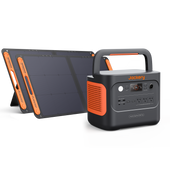

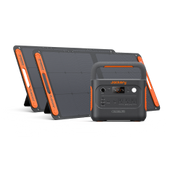
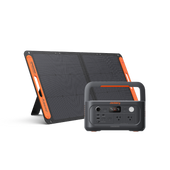
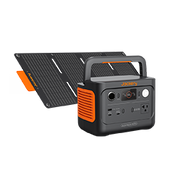
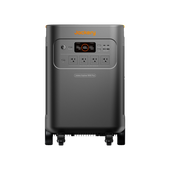
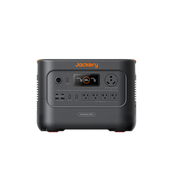
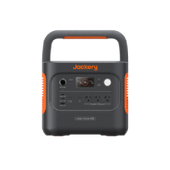
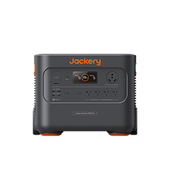
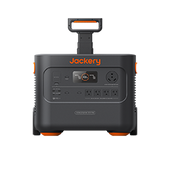

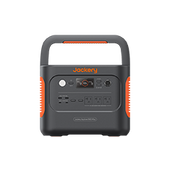
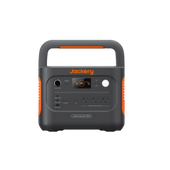
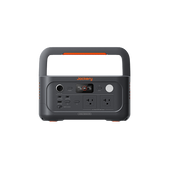

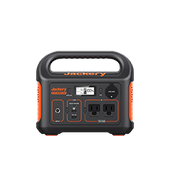
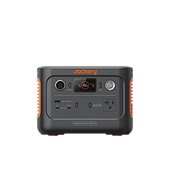
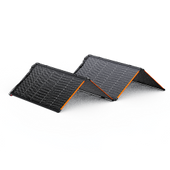
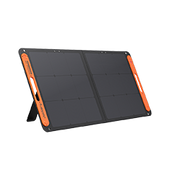


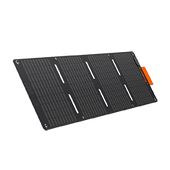
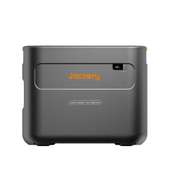
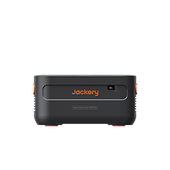
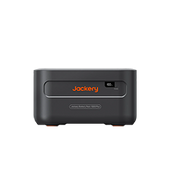
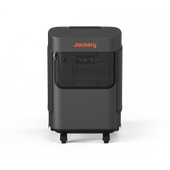
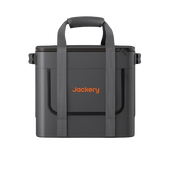
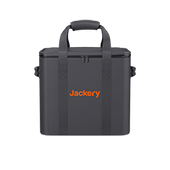
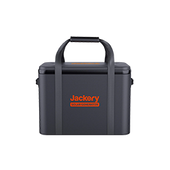
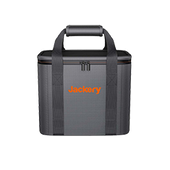
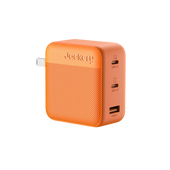
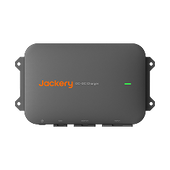
![[Add-on] Jackery Manual Transfer Switch for Explorer 5000 Plus](http://ca.jackery.com/cdn/shop/files/add-on-jackery-manual-transfer-switch-for-5000-plus-240V.webp?v=1757043692&width=170)
